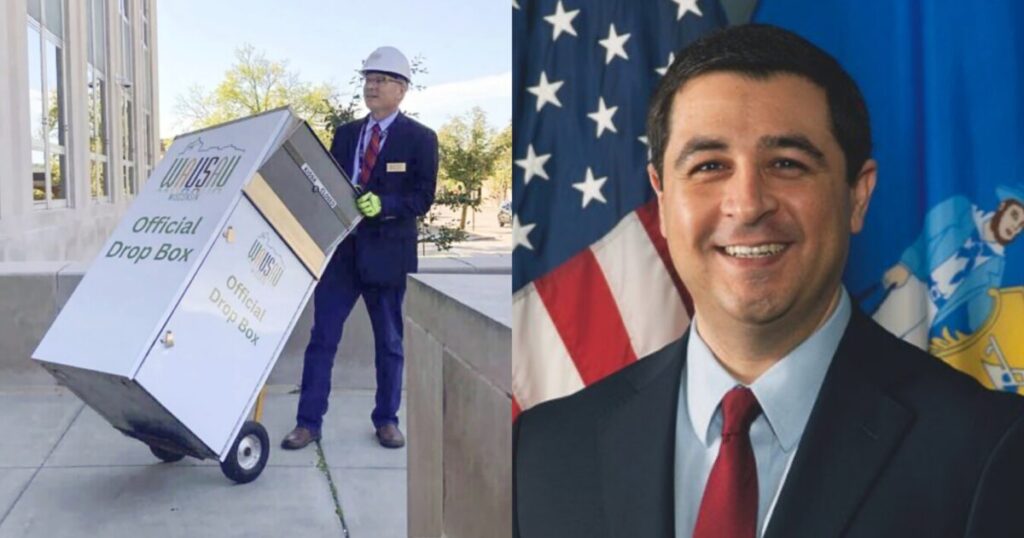The recent actions of Wausau Mayor Doug Diny have ignited a fierce political confrontation, leading to a significant intervention by the Wisconsin Department of Justice (DOJ). Diny, a conservative figure, made headlines when he physically removed an absentee ballot drop box from outside City Hall, citing a need for local council review rather than adherence to state mandates. This action has been interpreted by many as a form of voter suppression, evoking criticism from various quarters, including the state’s Democratic Attorney General, Josh Kaul. The intensity of the backlash escalated dramatically when law enforcement officials conducted a raid on Diny’s home and office, seizing multiple electronic devices as part of an investigation into the legality of his actions regarding the ballot box.
As tensions mounted, Diny defended his decision adamantly, asserting that his actions were not driven by any malevolent intentions but rather aimed at safeguarding the integrity of the electoral process. He posited that such a decision should rightfully belong to the elected city council rather than conforming to decrees from more liberal state authorities. Diny attempted to downplay the accusations of voter intimidation, referring to his actions as administrative maintenance rather than an effort to undermine the voting process. His insistence on protecting local governance and advocating for what he believes in reflects broader national tensions surrounding election practices and voter access, particularly in contested political environments.
The response from the Wisconsin DOJ, led by Attorney General Kaul, has been both swift and resolute. Kaul emphasized the importance of maintaining fair elections, asserting that voter intimidation is illegal and unacceptable. He pointed out that the DOJ is committed to ensuring a secure electoral environment in Wisconsin. The DOJ has established a collaborative framework through the Wisconsin State Intelligence Center (WSIC) to gather, analyze, and disseminate information related to threats against elections, demonstrating a proactive approach to addressing any potential disruptions to the democratic process.
Legal frameworks in Wisconsin explicitly prohibit a range of intimidating behaviors aimed at voters and election officials, outlining severe repercussions for those who engage in such acts. The laws cover a spectrum of potentially harmful behaviors, including verbal threats, physical confrontations, and intimidation tactics aimed at voters. The stringent regulations underscore the seriousness with which Wisconsin law treats electoral integrity, emphasizing that any form of coercion or interference undermines democratic principles.
Diny’s actions have polarized opinions, with critics arguing that his behavior could set a dangerous precedent concerning absentee voting and potentially disenfranchise voters. Supporters, however, argue that the mayor is merely exercising his rights to advocate for local decision-making. This situation mirrors broader national conversations about election access, security, and the various methods employed by officials to influence voter participation. The radical response from the DOJ may signal an attempt to address these evident divides and ensure that electoral practices follow established laws and ethical guidelines.
As of now, the conflict remains unresolved, with ongoing investigations and public discourse revealing deep-seated divisions within Wisconsin’s political climate. The actions taken by Diny, coupled with the aggressive response from the DOJ, reflect the profound stakes surrounding electoral integrity and access to voting in the contemporary landscape. As local and state governments grapple with these challenges, the outcomes of such confrontations may have lasting implications not only for Wausau but also for the future of voting in Wisconsin and beyond.

